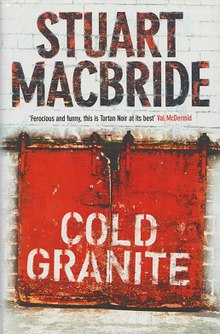
Crime fiction, detective story, murder mystery, mystery novel, and police novel are terms used to describe narratives that centre on criminal acts and especially on the investigation, either by an amateur or a professional detective, of a crime, often a murder. It is usually distinguished from mainstream fiction and other genres such as historical fiction or science fiction, but the boundaries are indistinct. Crime fiction has multiple subgenres, including detective fiction, courtroom drama, hard-boiled fiction, and legal thrillers. Most crime drama focuses on crime investigation and does not feature the courtroom. Suspense and mystery are key elements that are nearly ubiquitous to the genre.

Sir Ian James Rankin is a Scottish crime writer and philanthropist, best known for his Inspector Rebus novels.

William McIlvanney was a Scottish novelist, short story writer, and poet. He was known as Gus by friends and acquaintances. McIlvanney was a champion of gritty yet poetic literature; his works Laidlaw, The Papers of Tony Veitch, and Walking Wounded are all known for their portrayal of Glasgow in the 1970s. He is regarded as "the father of Tartan Noir" and as Scotland's Camus.

The Royal Stewart or Royal Stuart tartan is the best-known tartan retrospectively associated with the royal House of Stewart, and is also the personal tartan of the British monarch, presently King Charles III. The sett was first published in 1831 in the book The Scottish Gaël by James Logan. Officially, the tartan is worn by the pipers of the Black Watch, Royal Scots Dragoon Guards, and the Scots Guards, as well as a select few civilian groups like the Glasgow Police Pipe Band and the Winnipeg Police Pipe Band. The 5th Bolton Scout Group and the 5th Potters Bar Scout Group wear the scarf (neckerchief) officially, with permission from the Queen, and the Queen's Bands wear the tartan as part of their official uniforms. The tartan may also be worn by members who took part in a patrol leaders training course. In 1968 the Pipes and Drums of the 3rd battalion, Royal Australian Regiment were also given permission to wear the Royal Stewart Tartan.
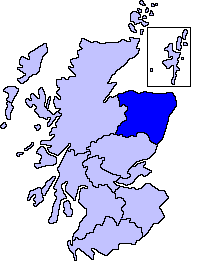
Grampian Police was, between 1975 and 2013, the territorial police force of the northeast region of Scotland, covering, from 1996, the council areas of Aberdeenshire, the Aberdeen City, and Moray. The Force area also covered some of the North Sea, giving Grampian Police the responsibility of policing the oil and gas platforms of the North East. The force was headquartered in Aberdeen.

Renee MacRae was a Scottish woman who disappeared on 12 November 1976, together with her 3-year-old son Andrew. Their case was the United Kingdom's longest-running missing persons case, and within Scotland is as notorious as Glasgow's Bible John murders. In September 2022, William (Bill) MacDowell was found guilty of the murder of MacRae and her son. Their bodies have never been found.
Tartan Noir is a form of crime fiction particular to Scotland and Scottish writers. William McIlvanney, who wrote three crime novels, the first being Laidlaw in 1977, is considered the father of the genre.

Stuart MacBride is a Scottish writer, whose crime thrillers are set in the "Granite City" of Aberdeen, with Detective Sergeant Logan McRae as protagonist.

Laidlaw is the first novel of a series of crime books by William McIlvanney, first published in 1977. It features the eponymous detective in his attempts to find the brutal sex related murderer of a Glasgow teenager. Laidlaw is marked by his unconventional methods in tracking the killer, immersing himself in a 1970s Glasgow featuring violence and bigotry.

Dark Road is a 2013 play written by Ian Rankin and Mark Thomson. It made its world premiere at the Royal Lyceum Theatre, Edinburgh in September 2013, and is expected to embark on a UK tour in 2014.
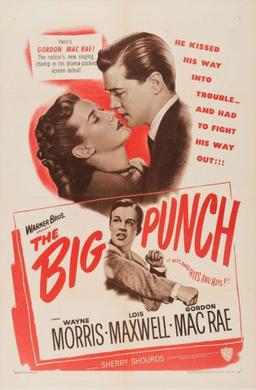
The Big Punch is an American drama boxing film released in 1948. The film was directed by Sherry Shourds, produced by Saul Elkins and stars Gordon MacRae, Lois Maxwell, Wayne Morris, Mary Stuart and Eddie Dunn. It is considered to be a film noir and was MacRae's film debut after having signed a five-year contract with Warner Bros.
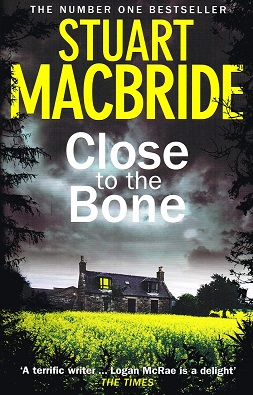
Close to the Bone is the eighth instalment in the bestselling Detective Sergeant McRae series of crime novels from Stuart MacBride.
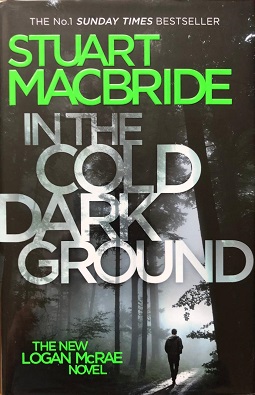
In the Cold Dark Ground is the tenth instalment in the bestselling Detective Sergeant McRae series of crime novels set in Aberdeenshire from Stuart MacBride.
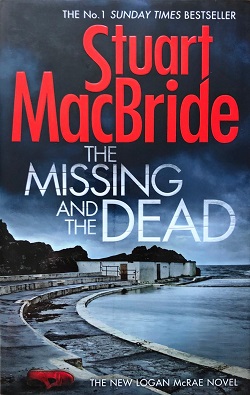
The Missing and the Dead is the ninth instalment in the bestselling Detective Sergeant McRae series of crime novels set in Aberdeenshire from Stuart MacBride.

A Dark so Deadly is a novel by Stuart MacBride which is set in the fictional town of Oldcastle. While this is a standalone novel, its setting of Oldcastle and the use of one of its characters, Dr Alice MacDonald, provide a link to the two Ash Henderson novels. A Dark so Deadly was the first of Macbride's seven books that did not debut at number one in the book charts.

The Blood Road is the eleventh book in the bestselling Logan McRae detective series set in Aberdeenshire by Stuart MacBride.
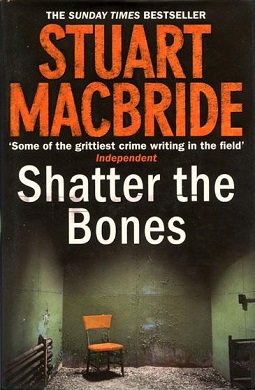
Shatter the Bones is the seventh book in the bestselling Logan McRae detective series set in Aberdeenshire by Stuart MacBride.

Now We Are Dead is a spinoff novel from the bestselling Logan McRae series by Stuart MacBride. The novel features some of the usual characters from the series but McRae's character appears in only two scenes with the story revolving around Roberta Steel. The novel has been described as being "lighter" and "more fun than the violence and misery of MacBride's blacker thrillers".

All That's Dead is the twelfth novel in the bestselling Logan 'Lazarus' McRae series written by Stuart MacBride.
